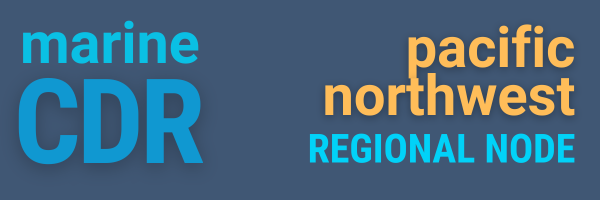
Regional node leads for Pacific Northwest – Meg Chadsey (Washington Sea Grant), Kohen Bauer (Univ. Victoria), Sara Nawaz (American Univ)
UPDATE
We are pleased to announce the formation of a new regional marine carbon dioxide removal (mCDR) community of practice, and hope you will join us on April 17th in Seattle for the inaugural gathering of the Pacific Northwest mCDR Node. This Node—one of five launched by the Ocean Carbon Biogeochemistry Program in late 2023—will facilitate the connection of mCDR practitioners and constituents operating in OR, WA, BC and AK across sectors, disciplines, and career stages. The goal is to foster dialogue and collaborations within the PNW mCDR community that reflect our region’s unique social, economic, environmental, and cultural contexts. The Carbon Business Council and others, supported by the ClimateWorks Foundation, are hosting a PNW Symposium on Responsible & Regional Deployment of Carbon Removal on April 18th. This event might be an opportunity to observe how other conversations on (m)CDR are evolving.



